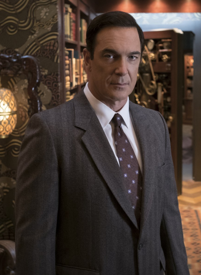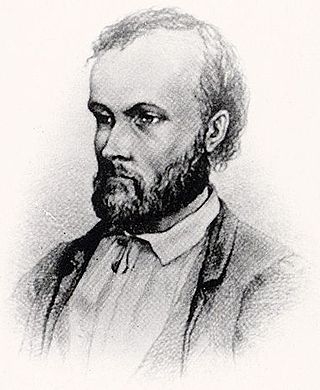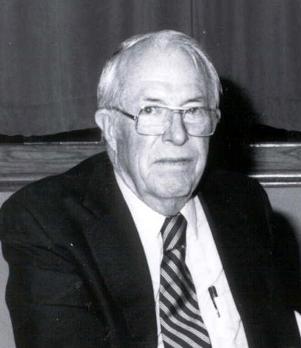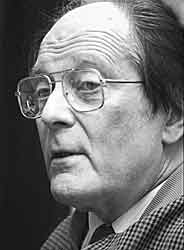The slave narrative is a type of literary genre involving the (written) autobiographical accounts of enslaved persons, particularly Africans enslaved in the Americas, though many other examples exist. Over six thousand such narratives are estimated to exist; about 150 narratives were published as separate books or pamphlets. In the United States during the Great Depression (1930s), more than 2,300 additional oral histories on life during slavery were collected by writers sponsored and published by the Works Progress Administration, a New Deal program. Most of the 26 audio-recorded interviews are held by the Library of Congress.

Uncle Tom's Cabin; or, Life Among the Lowly is an anti-slavery novel by American author Harriet Beecher Stowe. Published in two volumes in 1852, the novel had a profound effect on attitudes toward African Americans and slavery in the U.S., and is said to have "helped lay the groundwork for the [American] Civil War".

Lemony Snicket is the pen name of American author Daniel Handler. Handler has published various children's books under the name, including A Series of Unfortunate Events, which has sold over 60 million copies and spawned a 2004 film and Netflix TV series from 2017 to 2019 of the same name. Lemony Snicket also serves as the in-universe author who investigates and re-tells the story of the Baudelaire orphans in A Series of Unfortunate Events.

Aleksis Kivi was a Finnish writer who wrote the first significant novel in the Finnish language, Seitsemän veljestä, published in 1870. He is also known for his 1864 play, Nummisuutarit. Although Kivi was among the very earliest writers of prose and lyrics in Finnish, he is still considered one of the greatest.

Seitsemän veljestä is the first and only novel by Aleksis Kivi, the national author of Finland. It is widely regarded as the first significant novel written in Finnish and by a Finnish-speaking author, and is considered a real pioneer of Finnish realistic folklore. Some people still regard it as the greatest Finnish novel ever written, and in time it has even gained the status of a "national novel of Finland". The deep significance of the work for Finnish culture has even been quoted internationally, and in a BBC article by Lizzie Enfield, for example, which describes Kivi's Seitsemän veljestä as "the book that shaped a Nordic identity."

Kullervo is an ill-fated character in the Kalevala, the Finnish national epic compiled by Elias Lönnrot.

John Stewart Williamson, who wrote as Jack Williamson, was an American science fiction writer, one of several called the "Dean of Science Fiction". He is also credited with one of the first uses of the term genetic engineering. Early in his career he sometimes used the pseudonyms Will Stewart and Nils O. Sonderlund.

Harriet Jacobs was an African-American abolitionist and writer whose autobiography, Incidents in the Life of a Slave Girl, published in 1861 under the pseudonym Linda Brent, is now considered an "American classic".

Jaan Kross was an Estonian writer. He won the 1995 International Nonino Prize in Italy.

Incidents in the Life of a Slave Girl, written by herself is an autobiography by Harriet Jacobs, a mother and fugitive slave, published in 1861 by L. Maria Child, who edited the book for its author. Jacobs used the pseudonym Linda Brent. The book documents Jacob's life as a slave and how she gained freedom for herself and for her children. Jacobs contributed to the genre of slave narrative by using the techniques of sentimental novels "to address race and gender issues." She explores the struggles and sexual abuse that female slaves faced as well as their efforts to practice motherhood and protect their children when their children might be sold away.

James Dover Grant, primarily known by his pen name Lee Child, is a British author who writes thriller novels, and is best known for his Jack Reacher novel series. The books follow the adventures of a former American military policeman, Jack Reacher, who wanders the United States. His first novel, Killing Floor (1997), won both the Anthony Award and the 1998 Barry Award for Best First Novel.

Harriet E. Wilson was an African-American novelist. She was the first African American to publish a novel in North America.

Jean Little, CM was a Canadian writer of over 50 books. Her work mainly consisted of children's literature, but she also wrote two autobiographies: Little by Little and Stars Come Out Within. Little was partially blind since birth as a result of scars on her cornea and was frequently accompanied by a guide dog.

Finnish literature refers to literature written in Finland. During the European early Middle Ages, the earliest text in a Finnic language is the unique thirteenth-century Birch bark letter no. 292 from Novgorod. The text was written in Cyrillic and represented a dialect of Finnic language spoken in Russian Olonets region. The earliest texts in Finland were written in Swedish or Latin during the Finnish Middle Age. Finnish-language literature slowly developed from the sixteenth century onwards, after written Finnish was established by the bishop and Finnish Lutheran reformer Mikael Agricola (1510–1557). He translated the New Testament into Finnish in 1548.
Ibrahim Nasrallah, the winner of the Arabic Booker Prize (2018), was born in 1954 to Palestinian parents who were evicted from their land in Al-Burayj, Palestine in 1948. He spent his childhood and youth in a refugee camp in Jordan, and began his career as a teacher in Saudi Arabia. After returning to Amman, he worked in the media and cultural sectors till 2006 when he dedicated his life to writing. To date, he has published 15 poetry collections, 22 novels, and several other books. In 1985, he started writing the Palestinian Comedy covering 250 years of modern Palestinian history in a series of novels in which each novel is an independent one; to date 13 novels have been published in the framework of this project. Five of his novels and a volume of poetry have been published in English, nine in Persian, four works in Italian, two in Spanish, and one novel in Danish and Turkish.
Kaseva is a Finnish pop rock band from Tampere, Finland. Kaseva is well known from its beautiful melodies, harmony singing and playing 12 string guitars, and combining many styles of music and instruments. In the Finnish newspapers they were some times called "Finland's Lennon and McCartney". Kaseva have had some of their inspiration from the music of The Beatles, yet Kaseva has its own unique sound and style. The name Kaseva comes from the book of the epic poems, Kalevala, and it means handy.

Olli Jalonen (born February 21, 1954, in Helsinki, is a Finnish author. His debut book was published in 1978 and since that he has published over 20 books and drama. Some of his novels have been translated into German, Swedish, Norwegian, Estonian and Latvian, and short stories in different languages.

Child auction was a historical practice in Sweden and Finland during the 19th and early 20th centuries, in which orphan and poor children were boarded out in auctions. The name auction, however, does not refer to actual slave auctions, as the children in these auctions were never actually bought in a legal sense, but the name has become the common name for the practice.
Chinese people in Finland form one of the largest immigrant groups in Finland. As of 2023 there were 17,501 speakers of Chinese in Finland. About 60% of them reside in the capital region. As of 2023 there were 14,020 Chinese citizens living in Finland. From 1990 to 2023, a total number of 2,640 Chinese citizens had been granted Finnish citizenship. Between 1987 and 2023, 1,036 Chinese children were adopted in Finland, making China one of the most common countries of origin for international adoptions there.

Sofia Theodolinda Hahnsson was a Finnish writer and translator. She is the first known female author to write in Finnish. She was a significant figure in the literary society of Hämeenlinna. She had published several popular short stories, novels, and social plays, some of which appeared in newspapers.
















